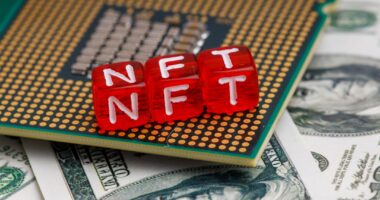The intersection of music and technology has always been a fertile ground for innovation, but the advent of blockchain technology and non-fungible tokens (NFTs) has ushered in a new era for the music industry. Music NFTs represent a unique digital asset that can encapsulate various forms of artistic expression, from songs and albums to concert tickets and exclusive merchandise. By leveraging blockchain technology, these digital assets provide artists with a novel way to monetize their work while ensuring authenticity and ownership.
The decentralized nature of blockchain allows for a transparent and secure method of tracking ownership and transactions, which is particularly beneficial in an industry often plagued by issues of copyright infringement and piracy. As artists seek to reclaim control over their creative output, the rise of music NFTs offers a promising solution that empowers musicians and enhances their relationship with fans. Moreover, the integration of blockchain technology into the music industry is not merely a trend; it represents a fundamental shift in how music is created, distributed, and consumed.
Traditional models often favor record labels and intermediaries, leaving artists with a fraction of the revenue generated from their work. In contrast, music NFTs enable direct transactions between creators and consumers, eliminating the need for middlemen and allowing artists to retain a larger share of their earnings. This paradigm shift not only democratizes access to music but also fosters a more engaged community of fans who can support their favorite artists directly.
As the landscape continues to evolve, the potential for music NFTs to reshape the industry is immense, paving the way for new business models and creative opportunities.
Key Takeaways
- Music NFTs and blockchain technology are revolutionizing the music industry by providing new ways for artists to monetize their work and engage with fans.
- Interoperability and cross-chain solutions are essential for the seamless transfer and exchange of music NFTs across different blockchain networks.
- Decentralized finance (DeFi) integration allows for the creation of new financial instruments and opportunities for artists and investors in the music industry.
- Enhanced copyright and royalty management through blockchain technology ensures that artists receive fair compensation and transparent royalty payments for their work.
- Tokenization of intellectual property rights enables artists to fractionalize ownership of their music, providing new investment opportunities for fans and collectors.
Interoperability and Cross-Chain Solutions
Breaking Down Silos
Interoperability refers to the ability of various blockchain networks to communicate and interact with one another seamlessly. This capability allows artists to mint their NFTs on one platform while ensuring that they can be traded or utilized on another, thereby broadening their reach and enhancing liquidity.
Fostering Collaboration and Innovation
Cross-chain solutions facilitate this interaction by enabling assets to move freely across different blockchains, which is essential for creating a cohesive marketplace for music NFTs. By breaking down silos between platforms, artists can tap into diverse audiences and marketplaces, maximizing their exposure and potential revenue. Furthermore, the development of cross-chain solutions is vital for fostering collaboration among various stakeholders in the music industry.
Enhancing User Experience
For instance, an artist could collaborate with another musician from a different blockchain ecosystem, creating a unique NFT that combines their works. This collaborative approach not only enriches the artistic landscape but also encourages innovation in how music is produced and shared. Additionally, interoperability can enhance user experience by allowing fans to manage their NFT collections across multiple platforms without the need for cumbersome transfers or conversions.
Decentralized Finance (DeFi) Integration

The integration of decentralized finance (DeFi) into the music NFT space presents exciting opportunities for artists and fans alike. DeFi refers to financial services built on blockchain technology that operate without traditional intermediaries such as banks or brokers. By incorporating DeFi principles into the music industry, artists can access innovative funding mechanisms that allow them to finance their projects directly through their fanbase.
For example, musicians can issue tokens that represent future earnings from their work, enabling fans to invest in their favorite artists while receiving a share of the profits generated from music sales or performances. This model not only democratizes access to funding but also aligns the interests of artists and fans more closely than ever before. Moreover, DeFi integration can enhance liquidity for music NFTs by allowing them to be used as collateral for loans or other financial products.
Artists can leverage their NFT collections to secure funding for new projects or tours without having to sell their assets outright. This flexibility empowers musicians to maintain ownership of their work while still accessing necessary capital. Additionally, fans who invest in these NFTs can benefit from potential appreciation in value as the artist’s career progresses.
The synergy between DeFi and music NFTs creates a dynamic ecosystem where financial innovation meets artistic expression, ultimately leading to a more sustainable model for both creators and consumers.
Enhanced Copyright and Royalty Management
One of the most significant challenges facing musicians today is the complex landscape of copyright and royalty management. Traditional systems often involve multiple intermediaries, leading to confusion over rights ownership and delayed payments. Blockchain technology offers a transformative solution by providing a transparent and immutable ledger that can accurately track ownership rights and royalty distributions in real-time.
By embedding copyright information directly into music NFTs, artists can ensure that they receive fair compensation for their work while minimizing disputes over ownership. This level of transparency not only protects artists’ rights but also fosters trust among fans who wish to support their favorite musicians. In addition to improving transparency, blockchain-based royalty management systems can automate payment processes through smart contracts.
These self-executing contracts automatically distribute royalties based on predefined conditions, ensuring that artists receive timely payments whenever their work is used or sold. This automation reduces administrative burdens and eliminates the need for manual tracking, allowing artists to focus more on their creative endeavors rather than navigating complex financial arrangements. As more musicians adopt this technology, we can expect a significant shift toward fairer compensation models that prioritize artists’ rights and streamline royalty management processes across the industry.
Tokenization of Intellectual Property Rights
Tokenization refers to the process of converting rights or assets into digital tokens that can be easily traded or managed on a blockchain. In the context of music, tokenization allows artists to represent their intellectual property rights as unique digital assets, enabling them to sell or license these rights directly to fans or other stakeholders. This innovative approach not only enhances liquidity for intellectual property but also empowers artists by giving them greater control over how their work is used and monetized.
For instance, an artist could tokenize specific rights associated with a song—such as performance rights or licensing rights—allowing them to sell these tokens individually while retaining ownership of the underlying work. The tokenization of intellectual property rights also opens up new avenues for collaboration within the music industry. By fractionalizing ownership through tokenization, multiple investors can collectively own a share of an artist’s work, creating opportunities for crowdfunding projects or collaborative ventures.
This model encourages community engagement and investment in artistic endeavors while providing artists with access to diverse funding sources. As tokenization becomes more prevalent in the music industry, it has the potential to redefine how intellectual property is valued and traded, ultimately leading to a more equitable distribution of wealth among creators.
Integration of Smart Contracts for Automated Royalty Payments

Smart Contracts in the Music NFT Ecosystem
Smart contracts are self-executing contracts with the terms of the agreement directly written into code on a blockchain. Their integration into the music NFT ecosystem has profound implications for royalty payments and overall financial transparency within the industry.
Automating Royalty Distributions
By utilizing smart contracts, artists can automate royalty distributions based on predetermined conditions such as sales figures or streaming metrics. This automation not only ensures that artists receive timely payments but also reduces administrative overhead associated with traditional royalty management systems. As a result, musicians can focus more on their craft rather than navigating complex financial arrangements.
Enhancing Trust and Transparency
Smart contracts enhance trust between artists and fans by providing verifiable proof of transactions and royalty distributions. Fans can track how much revenue an artist generates from their work and see how royalties are allocated among collaborators or contributors. This level of transparency fosters a sense of community among supporters who wish to engage more deeply with the artists they admire.
Future Applications and Innovations
Furthermore, as smart contract technology continues to evolve, we may see even more innovative applications within the music industry—such as dynamic pricing models that adjust based on demand or tiered access levels for exclusive content—creating new revenue streams for artists while enriching fan experiences.
Improved Scalability and Energy Efficiency
As interest in music NFTs grows, scalability becomes an essential consideration for blockchain networks supporting these digital assets. Scalability refers to a blockchain’s ability to handle an increasing number of transactions without compromising performance or speed. Many existing blockchain platforms face challenges related to congestion during peak usage times, leading to slow transaction speeds and higher fees—issues that could hinder widespread adoption in the music industry.
However, advancements in blockchain technology are paving the way for improved scalability solutions that can accommodate growing demand while maintaining efficiency. In addition to scalability improvements, energy efficiency is becoming an increasingly important factor in evaluating blockchain platforms. Traditional proof-of-work consensus mechanisms have been criticized for their high energy consumption; however, many newer blockchains are adopting proof-of-stake or other environmentally friendly alternatives that significantly reduce energy usage.
By prioritizing energy-efficient solutions, the music industry can align itself with broader sustainability goals while still embracing innovative technologies like NFTs. As both scalability and energy efficiency continue to improve within blockchain ecosystems, we can expect greater adoption of music NFTs across diverse platforms—ultimately benefiting both artists and fans alike.
Adoption of Layer 2 Solutions for Lower Transaction Costs
Layer 2 solutions are secondary frameworks built on top of existing blockchains designed to enhance transaction speed and reduce costs without sacrificing security or decentralization. The adoption of these solutions is particularly relevant in the context of music NFTs, where high transaction fees can deter both artists and fans from participating in this burgeoning market. By utilizing Layer 2 technologies such as state channels or sidechains, users can conduct transactions off-chain while still benefiting from the security features of the underlying blockchain network.
This approach not only lowers costs but also improves user experience by enabling faster transactions—an essential factor in fostering engagement within the music NFT space. Moreover, Layer 2 solutions can facilitate microtransactions—small payments that may not be feasible on traditional blockchains due to high fees—allowing fans to support artists in new ways. For instance, listeners could tip musicians directly during live streams or purchase exclusive content at lower price points without worrying about exorbitant transaction fees eating into their contributions.
This increased accessibility encourages greater participation from fans while providing artists with additional revenue streams that were previously unattainable through conventional models. As Layer 2 solutions gain traction within the music NFT ecosystem, we can anticipate a more vibrant marketplace where creativity flourishes alongside economic opportunity for all stakeholders involved. In conclusion, the convergence of music NFTs and blockchain technology heralds a transformative era for the music industry.
From enhanced copyright management to innovative funding mechanisms through DeFi integration, these advancements empower artists while fostering deeper connections with fans. As interoperability improves and Layer 2 solutions become more widely adopted, we are likely to witness an increasingly dynamic landscape where creativity thrives alongside economic sustainability—ultimately reshaping how we experience and engage with music in our lives.





